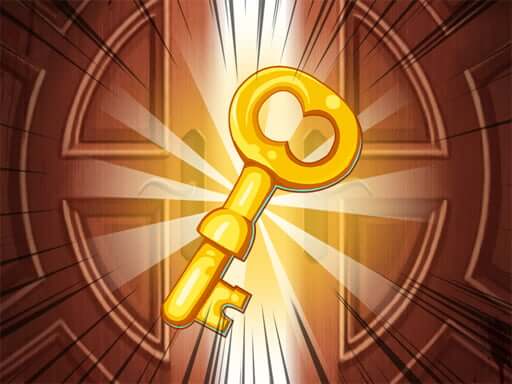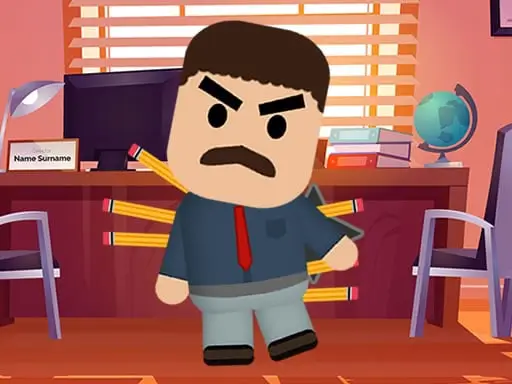In today’s digital age, gaming has evolved far beyond just entertainment. With the increasing integration of technology in education, games that stimulate the brain and promote learning have become widely popular. One platform that stands out for its unique combination of fun and education is Cool Math Games.
Known for its diverse range of games focused on logical thinking, problem-solving, and mathematical concepts, Cool Math Games has built a massive following among students, educators, and casual gamers alike. In this article, we’ll explore the history, types of games offered, and the benefits that Cool Math Games brings to the table.
The History of Cool Math Games
Cool Math Games was launched in 1997 by Karen, a math teacher with a mission to make learning math more enjoyable and accessible. The idea was simple: create a platform where students could play games that are both fun and educational, helping them to improve their math skills without feeling the pressure of a traditional learning environment.
Since its inception, the website has grown immensely, becoming a go-to resource for teachers looking to engage students in mathematical concepts outside the standard curriculum. What started as a niche site for math-based games quickly expanded into a full-blown educational portal, offering games in various categories beyond math, including logic puzzles, strategy games, and even adventure titles.
A Wide Variety of Games
Cool Math Games features an array of games that cover multiple areas of learning. While the primary focus is on math-related games, the platform has diversified its offerings to include logic, problem-solving, and even social-emotional learning experiences. Below are some of the main categories:
1. Math Games
As the name suggests, this is the platform’s bread and butter. Cool Math Games includes basic arithmetic games, such as addition, subtraction, multiplication, and division, as well as more advanced topics like algebra, geometry, and trigonometry. These games are designed to cater to students of different age groups and skill levels, from elementary to high school.
- “Run 3”: In this popular game, players navigate a series of tunnels that require quick thinking and problem-solving to avoid falling. Although not explicitly a math game, it engages spatial reasoning and strategic planning, which are important math-related skills.
- “Johnny Upgrade”: This game involves a superhero who needs upgrades to become stronger and faster. To progress, players must manage their in-game currency wisely, encouraging them to think about budgeting, resource allocation, and planning—all skills tied to math.
2. Logic Games
Logic is a key component of math, and Cool Math Games offers a plethora of puzzles that push players to think critically. These games help students develop reasoning abilities that are applicable in both math and real-world situations.
- “Fireboy and Watergirl”: One of the most popular games on the platform, Fireboy and Watergirl involves navigating two characters through a series of puzzles, each with their unique abilities. Players must use logical reasoning to solve these puzzles while coordinating between the two characters.
- “Bloxorz”: A puzzle game where players must roll a rectangular block through a maze and fit it into a square hole at the end. It requires careful thinking about the orientation and path of the block, promoting spatial awareness and strategic planning.
3. Strategy Games
Strategy games on Cool Math Games promote planning, resource management, and long-term thinking. These games go beyond math and help players develop skills in foresight and decision-making.
- “Papa’s Freezeria”: In this game, players run an ice cream shop, managing orders and balancing customer satisfaction with efficiency. It’s a mix of time management and planning, teaching concepts of prioritization and multitasking.
- “Chess”: A timeless strategy game, chess has long been associated with math due to its requirement for logical thinking, pattern recognition, and strategic foresight. Cool Math Games features various chess puzzles and games where players can practice their skills.
4. Skill-Based Games
Though skill-based games might not directly teach math concepts, they help players improve hand-eye coordination, reaction times, and attention to detail, all of which can indirectly enhance cognitive functions related to learning.
- “Snake”: A classic game where players control a growing snake that must eat without running into itself. This game promotes focus and spatial reasoning.
- “Duck Life”: This game involves training a duck in various skills like running, flying, and swimming, preparing it for races. While not math-heavy, it teaches players about patience, effort, and skill-building.
5. Adventure Games
Cool Math Games also offers adventure-based titles that are more exploratory in nature but still require problem-solving and critical thinking. These games often include narrative elements that keep players engaged while subtly promoting cognitive development.
- “Bob the Robber”: This stealth-based game challenges players to navigate through buildings, avoiding detection while solving puzzles. It requires players to think ahead and plan their movements, engaging both logic and strategy.
- “Snail Bob”: A slower-paced puzzle game where players guide a snail through increasingly complex levels filled with obstacles. It emphasizes the importance of timing and thoughtful decision-making.
The Educational Value of Cool Math Games
Cool Math Games isn’t just about fun; it’s a powerful educational tool that supports both traditional learning and more dynamic, informal learning experiences. Here are some of the key educational benefits:
1. Promotes Problem-Solving and Critical Thinking
Many of the games on Cool Math Games require players to think critically and solve problems. Whether it’s navigating through a maze, budgeting resources, or outmaneuvering an opponent in a game of chess, players are consistently challenged to use their cognitive skills. This is an excellent way to develop analytical thinking and apply it to real-world problems.
2. Reinforces Math Skills in a Non-Traditional Format
Cool Math Games takes math out of the classroom and into an engaging, low-pressure environment. This makes it a valuable resource for students who may struggle with math in a formal setting but thrive when learning is tied to gameplay. The platform covers a wide range of math skills, from basic arithmetic to more complex topics like algebra and geometry.
3. Improves Focus and Concentration
Games on Cool Math Games often require sustained focus and attention to detail. In many strategy or puzzle-based games, a single mistake can mean starting over or losing progress, so players are encouraged to stay alert and carefully think through their moves.
4. Encourages Persistence and Patience
Many games require multiple attempts to succeed, especially puzzle games that progressively increase in difficulty. Players must learn to persevere and not get discouraged by failure. This resilience can transfer to academic settings, where persistence is key to mastering challenging subjects like math.
5. Supports Collaborative Learning
Some games on Cool Math Games are designed for multiple players or encourage social interaction. Games like “Fireboy and Watergirl” require teamwork and communication, making them ideal for group play. Students can collaborate to solve puzzles, which not only improves their math and logic skills but also their ability to work effectively in teams.
6. Appeals to Different Learning Styles
Cool Math Games accommodates a variety of learning styles. Some students learn best through hands-on, interactive methods, and games provide a tactile experience that traditional classroom learning often lacks. Visual learners benefit from games that involve pattern recognition and spatial reasoning, while auditory learners can appreciate games with sound cues that guide their decision-making.
The Role of Cool Math Games in Modern Education
In today’s educational landscape, where screen time is often viewed as a distraction, Cool Math Games offers a counterpoint. It demonstrates that not all online activities are created equal. Educational gaming platforms like Cool Math Games can play a pivotal role in complementing traditional education. Schools and educators are increasingly incorporating technology into their lesson plans, and platforms like Cool Math Games can serve as a bridge between learning and play.
1. Classroom Integration
Teachers can integrate games from Cool Math Games into their lesson plans as supplemental activities. Games that focus on specific math topics, like multiplication or geometry, can serve as a form of “gamified” homework, helping students practice without feeling like they are engaging in monotonous drills.
2. Self-Paced Learning
One of the strengths of Cool Math Games is its accessibility for self-paced learning. Students can play games at their own speed, revisiting challenging problems or puzzles until they master them. This flexibility is particularly beneficial for students who need extra practice or those who wish to advance beyond their current grade level.
3. Gamification of Learning
Gamification—applying game design elements to learning—has become a popular educational strategy, and Cool Math Games is a prime example. By turning math problems and logical puzzles into games, students can engage in learning in a fun, rewarding way. Points, levels, and achievements provide motivation, helping to transform tedious tasks into enjoyable challenges.
Conclusion
Cool Math Games has proven itself as more than just a platform for entertainment. By combining fun gameplay with cognitive challenges and math-based learning, it has become an essential tool for educators and students alike. Whether it’s reinforcing arithmetic, teaching logical reasoning, or simply offering a mental workout, Cool Math Games stands as a testament to the power of educational gaming.
As technology continues to evolve and integrate with education, platforms like Cool Math Games will likely play an even more significant role in the future. They show us that learning doesn’t have to be confined to textbooks and classrooms—it can be as simple as solving puzzles, strategizing in games, and having fun.


